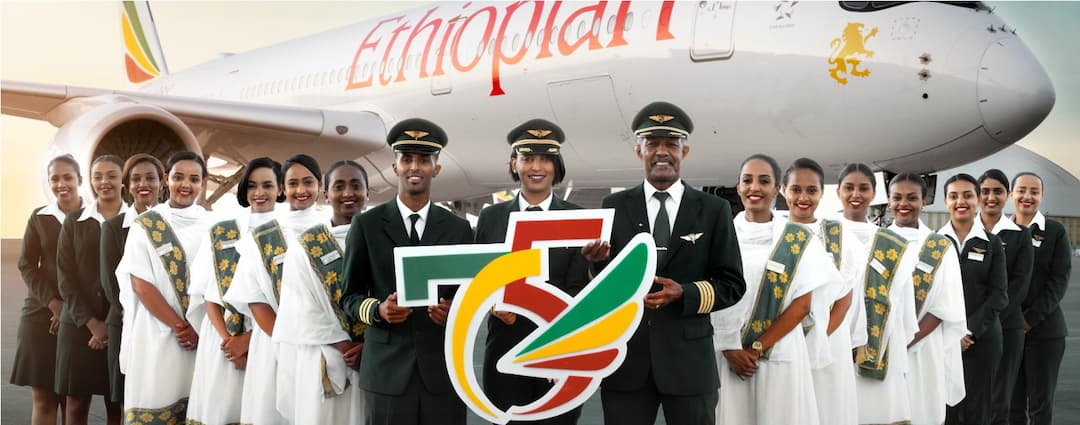In an industry that is troubled by global standards, and dying, by African standards, Ethiopian Airlines has remained successful in terms of safety and profitability for its almost seven decades of existence and counting. In 2011 alone, for instance, Ethiopian Airlines received four different awards. These include African Cargo Airline of the Year, Deal of the Year 2010 Award, Africa’s Most Profitable Airline of the Year (2011 was the third in a row) as well as African Airlines Association (AFRAA) Award for being consistently profitable over the years. (AFRAA is the trade organization open to membership of African Union states in the airline business). Ethiopian Airlines’ success story is no doubt a far cry from the underperformance and/or comatose state of the likes of South African Airlines, Kenyan airlines, Air Afrique, and Nigeria Airways, to name a few. It leaves many in wonderment what accounts for such achievement? Some close watchers of the airline are of the opinion that national pride is a contributing factor.
According to one source, after the liberation of Ethiopia, Emperor Haile Selassie I asked the United States, the United Kingdom, and France to help him establish an airline as part of his modernization effort. The BBC, in a report once attributed the possibility that the Emperor intended the creation of a quality national airline to help dispel impressions of Ethiopian poverty. That instinct to dispel the poverty perception of Ethiopia in the emperor smacks a sense of dignity as a person, which may have permeated the nation, coupled with the desire to live that Ethiopian pride may have impelled the emperor to employ his best resources towards establishing the airline and ensure that it worked. Probably that desire formed the very basis that would become a tradition that would keep the airline afloat to date. And as if to shield the entity from the claws of a financially hard-pressed government, the emperor in time made the airline completely independent of government interference.
Ethiopian Airlines, which is wholly owned by the government of Ethiopia, has traditionally been unfettered by government intervention, even during times of significant turmoil and domestic hardship. Whereas many African state owned airlines were and remain poorly run, with staffing even serving nepotistic purposes, and business decisions being made on political grounds, Ethiopian Airlines remains professionally run and managed, leading the Christian Science Monitor to term it more than two decades ago as a capitalist success in Marxist Ethiopia. That sense of dignity may have infused a tradition to make the airline to succeed in the generations to come. As if to bolster that argument, the airline’s CEO, Tewolde Gebremariam, has said: “First and foremost, the airline has exceptionally dedicated and uniquely committed employees and management. Ethiopian Airlines employees do not consider their association with their airline as a simple contract of employment for a monthly pay check; rather they consider themselves to be in a long-term mission of building a competitive global airline brand for their country.
“The airline has also been very strict on cost leadership. We knew we had to be a full-service network carrier but we wanted the lowest possible unit cost while providing a product that meets global standards. That has given us a competitive advantage in terms of pricing flexibility. “And we have a long-term vision. Very few airlines think in terms of a 15-year strategy. If you just go from quarter to quarter you may hit a few targets but you will neglect your longer-term goals. He further explained, “corporate governance has played a role too. The ownership and management of the airline are completely separate and this has been a successful set-up. The government is the 100% owner, but the management are aviation professionals and run the airline as an independent business. There is no unwarranted interference and management are responsible and accountable for day-to-day operations. Last but not least, we have a strong brand in Africa.
We have been providing connectivity for a long time and we have a lot of good will from all African countries.” Abenet Bekele, the Chief Strategy Officer of the Ethiopia Commodity Exchange added that the Airlines invests in the professional ability of its employees with the goal of rendering such services to its clients that they always want to come back. The foregoing points to cost-effective management, as well as well trained work force that contributes to high retention of customers and dedication to build a brand as the success factors of the airline.
But if that is so, then it leaves a lingering question in mind, why hasn’t the Ethiopian airline’s success story been replicated in other sectors of the economy? Not a few Ethiopians point to the fact that the airline has been independent of government interference for almost five decades, whereas other sectors have only until the past 10 or 15 years been run by government. They posit that with government getting its hands off business, Ethiopia may begin to score successes in other sectors of the economy
– See more at: http://www.mynewswatchtimesng.com/ethiopian-airlines-can-success-story-replicated-nigeria/#sthash.dSm5H3Ya.dpuf






